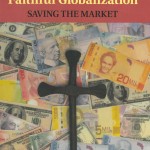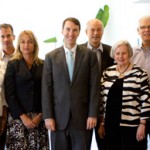by Amy Reynolds
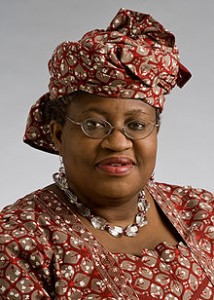 With discussions currently underway, the World Bank is expected to name a new president next week. Three candidates are being considered for the position: Nigerian Finance Minister and managing director at the World Bank, Ngozi Okonjo-Iweala; Columbian professor and former Colombian Finance Minister José Antonio Ocampo; and Dartmouth University President and medical doctor Jim Yong Kim.
With discussions currently underway, the World Bank is expected to name a new president next week. Three candidates are being considered for the position: Nigerian Finance Minister and managing director at the World Bank, Ngozi Okonjo-Iweala; Columbian professor and former Colombian Finance Minister José Antonio Ocampo; and Dartmouth University President and medical doctor Jim Yong Kim.
The two institutions that make up the World Bank—the International Bank for Reconstruction and Development (IBRD) and the International Development Association (IDA)—have the goal of reducing poverty and promoting development. As stated on their website, “The IBRD aims to reduce poverty in middle-income and creditworthy poorer countries, while IDA focuses exclusively on the world’s poorest countries.”
What are the qualifications most important for leading an international development-focused organization? Reading through the various articles supporting (or pointing out flaws in) the different candidates, the debates over their qualifications raise at least three important questions about economic development and poverty more generally.
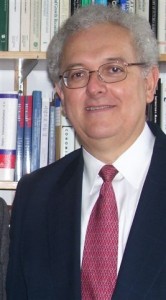 1) Who should hold the power within a development organization? The World Bank (headquartered in D.C.) is largely controlled by Europe and the U.S.(based on money invested into the bank). From the bank’s founding in 1944, it has always had an American president. In fact, this is actually the first time that non-U.S. candidates are being considered, even as many predict Kim will be elected because he was nominated by Barack Obama.
1) Who should hold the power within a development organization? The World Bank (headquartered in D.C.) is largely controlled by Europe and the U.S.(based on money invested into the bank). From the bank’s founding in 1944, it has always had an American president. In fact, this is actually the first time that non-U.S. candidates are being considered, even as many predict Kim will be elected because he was nominated by Barack Obama.
Should those putting in the most money have the most say? Should each country have an equal vote? Or should those countries most affected by the policies of the bank be given more weight?
As nobel laureate economist Joseph Stiglitz suggests in an opinion piece,
Since expertise on development by and large lies within the emerging and developing countries—after all, they live development—it seems natural that the World Bank’s head would come from one of those countries. While the US, the international community, and the Bank itself repeatedly emphasize the importance of good governance, a selection procedure that de facto leaves the appointment to the US president makes a mockery of it.
2) What is the end of development? Economic growth is often seen as central to the
equation, alongside issues such as life span and quality of life. The World Bank uses the Human Development Index (HDI) to take into account a number of factors.
As someone who studies the underlying values of markets, I reject the notion that markets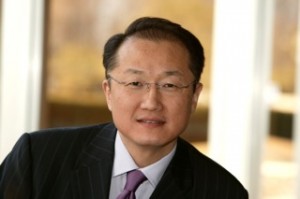 are simply efficient structures for the allocation of goods. Likewise, I would argue that development is too often equated with economic growth, and more important than measuring development is figuring out what it entails. Our current markets (and development paradigms) often value individualism over the community; efficiency over equity. We must acknowledge that assessing how to define and measure development is an ethical, and not merely technical, process. As I find in my own research, economists and theologians rarely provide similar answers over the central aspects of development.
are simply efficient structures for the allocation of goods. Likewise, I would argue that development is too often equated with economic growth, and more important than measuring development is figuring out what it entails. Our current markets (and development paradigms) often value individualism over the community; efficiency over equity. We must acknowledge that assessing how to define and measure development is an ethical, and not merely technical, process. As I find in my own research, economists and theologians rarely provide similar answers over the central aspects of development.
3) Who is an expert in development? I find this to be one of the most interesting questions in the current discussions, perhaps because the answers are so different. Okonjo-Iweala and Ocampo are economists; Kim a medical doctor with a doctorate in anthropology. While Forbes and the Economist, alongside a cadre of World Bank leaders, seem to be endorsing Okonjo-Iweala, other development economists have endorsed Ocampo.
What are the most important skills we want a “development expert” to have. Is having experience on the ground important? Being able to design economic models? Evaluating the data produced by those models? Having experience making economic policy decisions? Understanding the interaction of a local culture to development programs?
While this debate is currently being followed in the media, it is not that dissimilar from those being held in boardrooms in the religious development world. A number of Christian relief & development organizations have selected as recent presidents those with expertise in the financial and business world; others value someone who has spent time in various parts of ‘the field.’ As a recent post on this site highlighted, when Christianity Today asked what development initiatives were most (cost) effective, it was the economists who made that evaluation. Kim’s nomination, at the very least, challenges the notion that economic expertise is the most central development-related skill.
Given the current power structures, it seems likely that Jim Yong Kim will take over from current president Robert Zoellick later this month. As someone who spent time with World Relief (a Christian relief and development organization) in El Salvador, I will be watching for the announcement. Yet to be honest, I’m perhaps equally interested in the responses of both friends and public leaders, to better understand how they think about poverty, development, and power.


